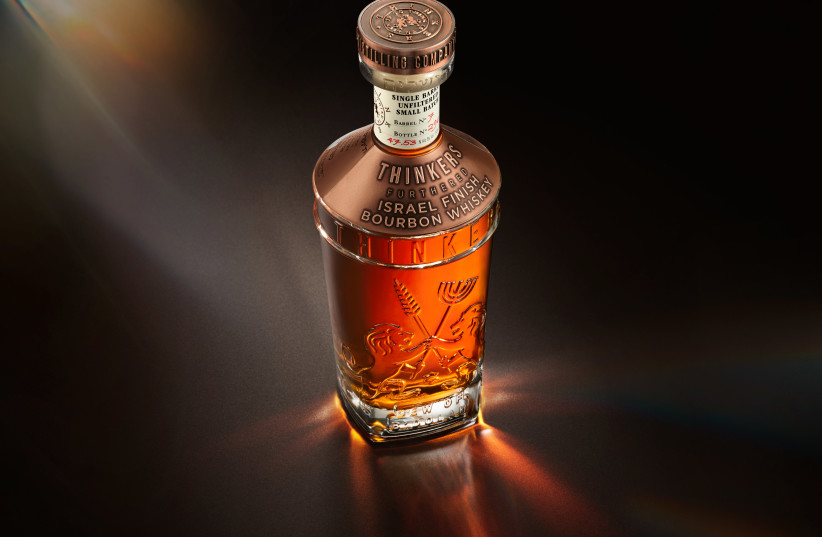People living in the land of Israel have been producing wine for thousands of years, except for a 1,200-year break when the land was under Muslim control. But now Israel is producing spirits including whiskey, gin and now bourbon.
Dew of B’dolah is a smooth bourbon that was born in the US, matured at sea, and aged and bottled in Israel. It is the latest product from Thinkers Distillery, which has already made a name for itself in Jerusalem with the production of gin.
“Our goal is to make the most elegant spirits in the world. The way to measure that is balance, with each flavor getting a turn to be experienced.”
Bennett Kaplan
“Our goal is to make the most elegant spirits in the world,” Thinkers’ owner Bennett Kaplan told a group of reporters at the launch of their most recent beverage “Dew of B’dolah.”
“The way to measure that is balance, with each flavor getting a turn to be experienced.”
Kaplan said that bourbon sales worldwide are set to pass those of Scotch soon, and charged that “Scotch types are just full of themselves.”
How is bourbon made?
Bourbon is a type of whiskey and is made according to strict rules. The “mash,” the raw material that is distilled, must be at least 51% corn. The rest is usually rye or wheat and malted barley. In this case, they don’t use rye at all, just wheat and barley. The spirit must be aged for at least three years in a brand new American oak barrel that must be charred. Lastly, the bourbon cannot be distilled past 62%.

The new charred American oak barrels are what give bourbon those sweet caramel notes. Kaplan says that 95% of all Scotch is aged in used bourbon barrels.
Dew of B’dolah is created in the US and then put on a ship on a circuitous route to Israel. The rocking on the ship, Kaplan said, makes more of the liquid come in contact with the barrel. It is then aged for three years in Haifa.
The resulting drink is smooth and balanced with nice notes of caramel and vanilla. Kaplan suggested drinking it with one ice cube.
Whisky aficionado Laura Cornfield said that “once I put the ice cube in, it became one of the best bourbons I’ve ever tasted.”
“Once I put the ice cube in, it became one of the best bourbons I’ve ever tasted.”
Laura Cornfield
The NIS 350 ($100) price tag is high, but similar to other spirits made in Israel. It won’t be easy to find, however. Thinkers has already signed a contract with Total Wine and More, a chain in the US, to buy 90% of their production.
Buying local Israeli whiskey
If you want to buy local Israeli whisky, one possibility is the Yerushalmi distillery – founded by Canada native David Zibel. Located at Moshav Zanoah between Jerusalem and Tel Aviv, the distillery produces two types of peated malt whiskies and three types of rum.
Their newest is called “Burnt Offering” and is a peated single malt. Produced through crowdfunding, it was released on Thursday at an event that included cholent. The crowd was a mix of hipsters and yeshiva guys, all who love whisky.
“All of our whiskies have now been aged for three years, which means we can put whisky on the label,” Zibel said. “We’ve used four different casks aged in different types of barrels.”
Israelis still lag behind their European counterparts when it comes to drinking alcohol – whether its beer, wine or whisky. While travel abroad has convinced Israelis, especially younger ones, to spend more money on alcohol, they are the lowest of all OECD countries when it comes to total consumption. Even after adjusting for the fact that many Muslims don’t drink, Israeli total consumption is still low.
But things are changing. From cocktails in restaurants to expensive wine to premium spirits, these distilleries are convinced that the Israeli market is set to grow quickly.
